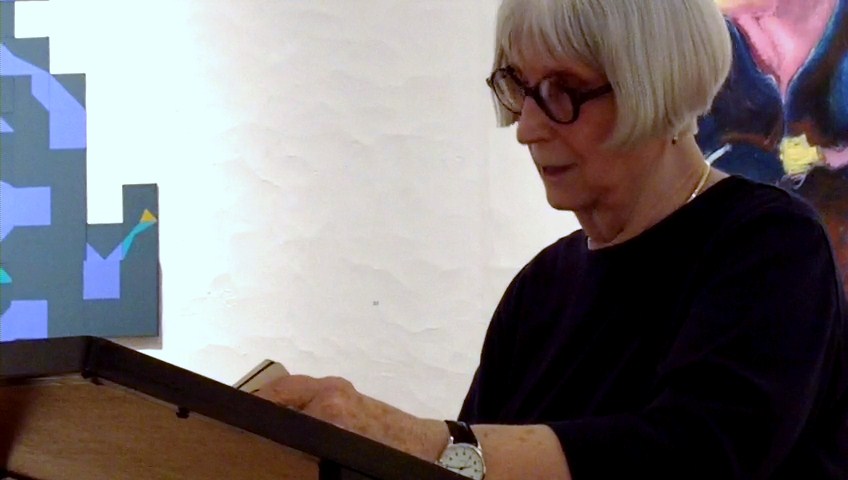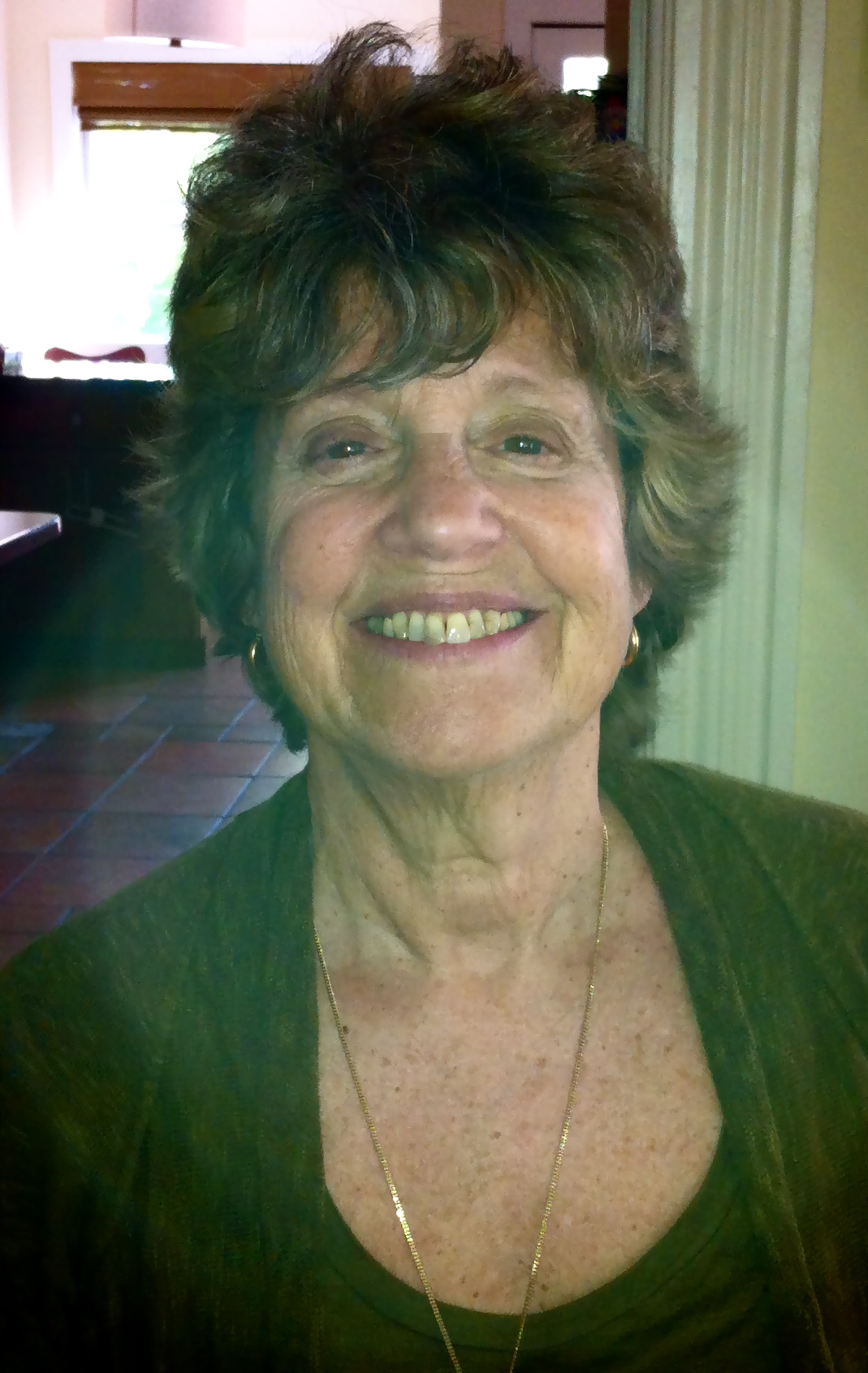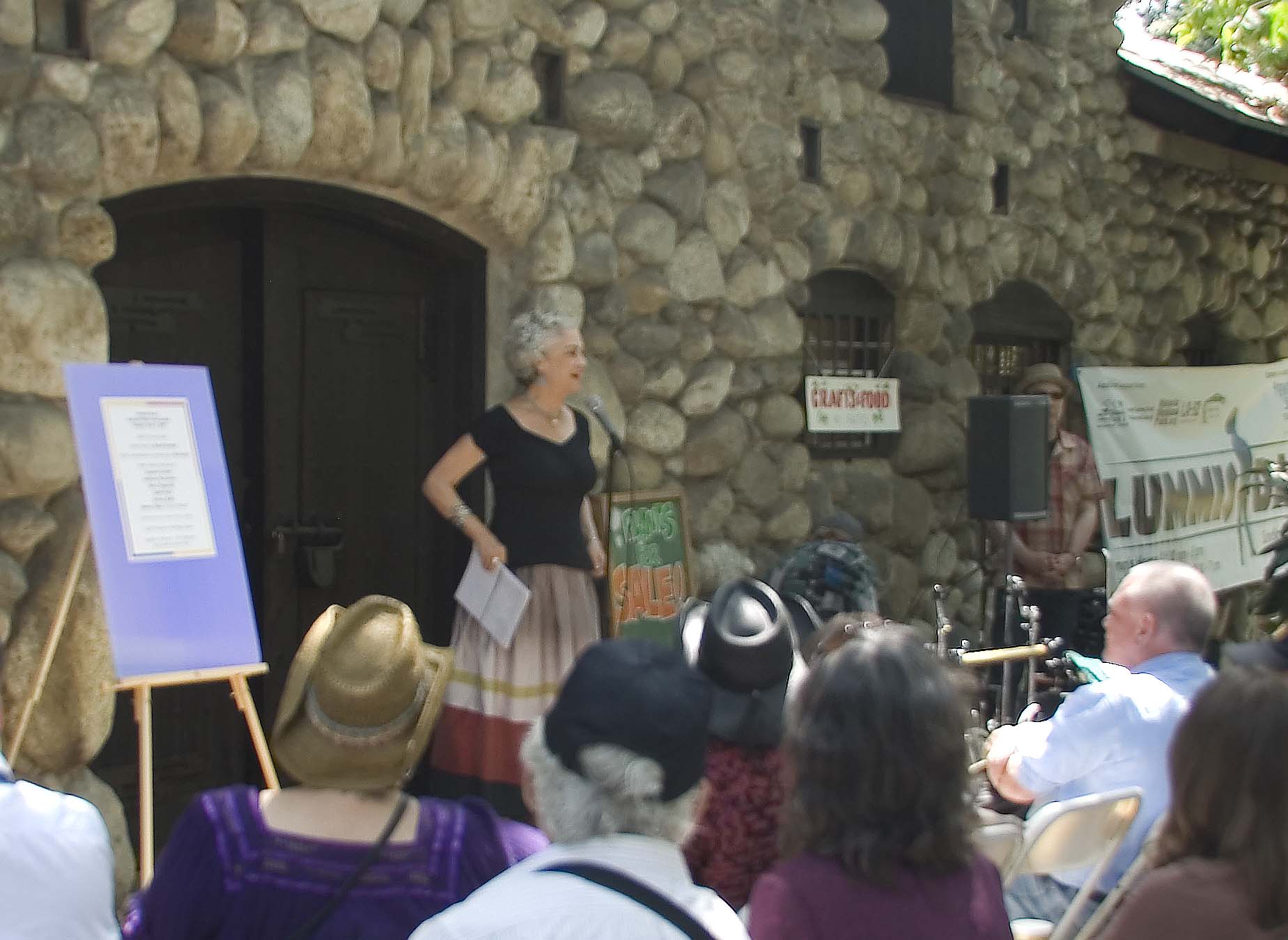Diane Wakoski Pays Poetic Homage to the French New Wave
On June 20, poet Diane Wakoski read with the Woodward Line Poetry Series at the Scarab Club in Detroit. Series coordinator Kim Hunter writes about her visit.
To get to Detroit’s Scarab Club art gallery, Diane Wakoski drove ninety miles to from East Lansing, Michigan, where she has been Michigan State University’s Poet in Residence and a professor since 1975. By the time you read this, she will have retired, capping an illustrious academic career.  She also capped the 2011–2012 season for the Woodward Line Poetry Series, which runs from September through June. The decade-old series takes place in the century-old Scarab Club art gallery. The lower floor, where the reading took place, is an airy, brilliant white space with wooden floors. Wakoski read in front of a five-foot-long painting of a rooster and managed not to be upstaged.
She also capped the 2011–2012 season for the Woodward Line Poetry Series, which runs from September through June. The decade-old series takes place in the century-old Scarab Club art gallery. The lower floor, where the reading took place, is an airy, brilliant white space with wooden floors. Wakoski read in front of a five-foot-long painting of a rooster and managed not to be upstaged.
The crowd of about thirty people ranged from college-aged attendees to fans who’d been following Wakoski’s work for decades. Though most seemed familiar at least with Wakoski’s longstanding reputation, if not her many publications, Wakoski’s reading style and ability to frame her work would have provided an excellent introduction to even the most poetry-phobic.
In addition, all of the evening’s selections were about films. She began the reading by noting the irony of having been born in southern California, but not having become interested in movies until she moved to New York and saw a French New Wave film by Jean-Luc Godard. It was then that she realized film could be art (another irony, since Hollywood inspired the French New Wave). Part of the publicity for the reading included a video posting of her paean to Jean Cocteau’s Beauty and the Beast (read by a Canadian radio host).
During the question and answer session that followed the reading, I asked her if she saw any parallels between the structure of her very visual work and the structure of film. She replied that it was more that she liked films that were like her poems: films where the plot was merely a means to draw the audience into something deeper. Indeed, though her work referenced pop culture throughout the evening, she always moved deeper, as with “Beauty And The Beast,” to themes of desire and how we deceive ourselves with it and for it.
Photo: Diane Wakoski. Credit: Kim Hunter.
Support for Readings/Workshops events in Detroit is provided by an endowment established with generous contributions from the Poets & Writers Board of Directors and others. Additional support comes from the Friends of Poets & Writers.





 I stayed in upstate New York, working on a PhD from State University of New York at Albany. I was pursuing a degree in poetry and poetics, and it struck me that there were very few reading series taking place in the city. And so I, along with some fellow graduate students, established the
I stayed in upstate New York, working on a PhD from State University of New York at Albany. I was pursuing a degree in poetry and poetics, and it struck me that there were very few reading series taking place in the city. And so I, along with some fellow graduate students, established the  What makes your workshops unique?
What makes your workshops unique? Mary Fitzpatrick elegantly flipped from ironic meditations on the innocence of young love to a scathing review of the social masks so normal to Angeleno life. Her poem “Pompeii” concluded with a question: Is our culture evolving, or are we as trapped in artifice as the civilization of Pompeii after the historic volcano eruption encased it in stone?
Mary Fitzpatrick elegantly flipped from ironic meditations on the innocence of young love to a scathing review of the social masks so normal to Angeleno life. Her poem “Pompeii” concluded with a question: Is our culture evolving, or are we as trapped in artifice as the civilization of Pompeii after the historic volcano eruption encased it in stone?